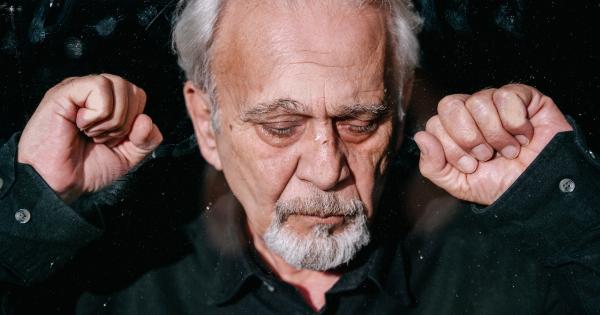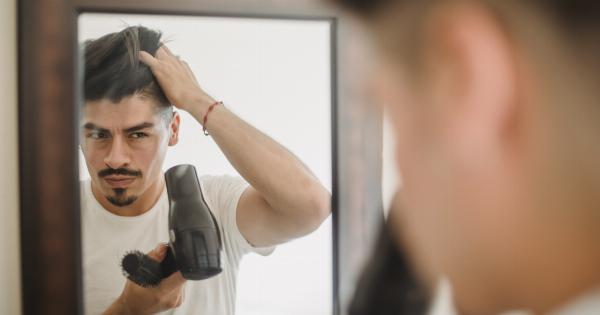Hair loss is a common problem that affects millions of people worldwide. It can be caused by a variety of factors, including genetics, hormonal changes, medications, and underlying medical conditions.
While there are many treatments available for hair loss, the pharmaceutical industry has developed a range of products specifically designed to combat this issue. In this article, we will explore some of the most effective pharmaceutical products that are currently being used to fight hair loss.
1. Finasteride
Finasteride, sold under the brand name Propecia, is an FDA-approved medication that is widely used for the treatment of male pattern baldness.
This oral medication works by inhibiting the conversion of testosterone to dihydrotestosterone (DHT), a hormone that is responsible for shrinking hair follicles in individuals with genetic hair loss. Clinical studies have shown that finasteride can effectively slow down hair loss and promote hair regrowth in men.
2. Minoxidil
Minoxidil is a topical medication that is available in different strengths, usually in the form of a foam or liquid, and is applied directly to the scalp.
Originally developed as an oral medication for hypertension, it was discovered that minoxidil had an unexpected side effect of stimulating hair growth. Today, it is one of the most commonly used over-the-counter treatments for hair loss. Minoxidil works by increasing blood flow to the hair follicles, which promotes hair growth and prevents further hair loss.
3. Ketoconazole
Ketoconazole is an antifungal medication that is available both as a prescription and over-the-counter shampoo. It has been found to have anti-androgenic properties, meaning it can block the effects of androgens, such as DHT, on the hair follicles.
By reducing the levels of DHT in the scalp, ketoconazole can help slow down hair loss and improve hair density.
4. Dutasteride
Dutasteride, marketed as Avodart, is a medication primarily used in the treatment of benign prostatic hyperplasia (BPH), but it has also shown potential in treating hair loss.
Similar to finasteride, dutasteride works by inhibiting the conversion of testosterone to DHT. However, dutasteride is a more potent inhibitor of this enzyme and has been found to be more effective in promoting hair growth. It is currently prescribed off-label for the treatment of hair loss, particularly in men.
5. Spironolactone
Spironolactone is an oral medication that is primarily used as a diuretic to treat conditions like high blood pressure and edema. However, it has also been found to have anti-androgenic effects, making it a potential treatment for hair loss in women.
Spironolactone works by blocking the action of androgens on the hair follicles and reducing the production of DHT. Women with hormonal hair loss, such as those experiencing androgenetic alopecia, can benefit from spironolactone therapy.
6. Platelet-Rich Plasma (PRP)
Platelet-rich plasma, also known as PRP, is a treatment that involves drawing a small amount of the patient’s blood and processing it to concentrate the platelets.
The resulting platelet-rich plasma is then injected into the scalp, stimulating hair growth. Platelets contain growth factors that promote tissue repair and regeneration, making PRP an effective option for individuals with hair loss.
While more research is needed to fully understand its mechanisms, PRP has shown promising results in various studies.
7. Laser Therapy
Laser therapy for hair loss involves the use of low-level laser devices or combs that emit red light to stimulate hair growth.
The light from these devices is believed to improve circulation in the scalp and stimulate hair follicles, leading to increased hair growth. Laser therapy is a non-invasive treatment option and is available in both home-use and clinical settings.
8. Biotin Supplements
Biotin, also known as vitamin H, is a B-complex vitamin that plays a crucial role in the health of the hair, skin, and nails. While biotin deficiency is rare, some people may benefit from biotin supplements to support hair growth.
Biotin supplements are readily available over the counter and are often included in hair growth formulas. However, it is essential to consult a healthcare professional before starting any new supplements.
9. Niacin
Niacin, or vitamin B3, is another essential nutrient that can impact hair health. It helps improve blood circulation, bringing more oxygen and nutrients to the hair follicles, promoting hair growth.
Niacin is commonly found in various food sources, but supplements are also available for those looking to boost their niacin intake. As with any supplements, it is advisable to consult a healthcare professional before starting niacin supplements.
10. Zinc Supplements
Zinc is a vital mineral that plays a role in numerous bodily functions, including hair growth and repair. It helps maintain the structure of the hair follicles and aids in the production of new hair cells.
Zinc deficiency has been associated with hair loss, so ensuring an adequate intake of zinc through diet or supplements can help promote hair growth.
Conclusion
Hair loss can have a significant impact on an individual’s self-esteem and quality of life. While there are various causes of hair loss, pharmaceutical products offer effective solutions to combat this issue.
From medications like finasteride and minoxidil to natural supplements like biotin and zinc, there are numerous options available to promote hair growth and prevent further loss. It is important to consult with a healthcare professional to determine the best course of treatment based on the underlying cause of hair loss and individual needs.


























